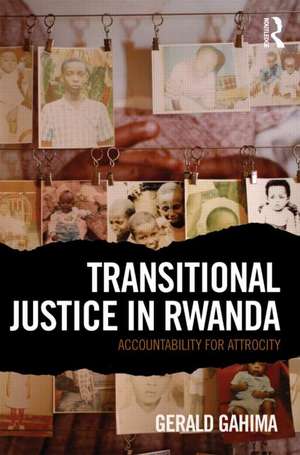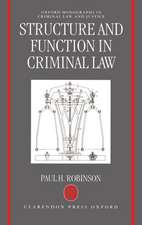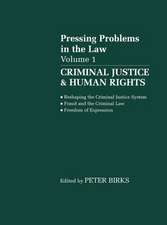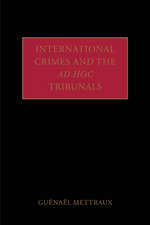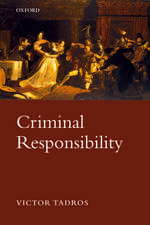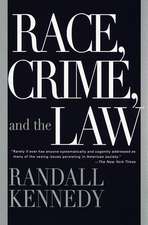Transitional Justice in Rwanda: Accountability for Atrocity
Autor Gerald Gahimaen Limba Engleză Paperback – 10 dec 2012
While recognizing the necessity of pursuing accountability for mass atrocity, the book argues that a maximal approach to accountability for genocide may undermine the promotion of core objectives of transitional justice. Taking on one of the key questions facing practitioners and scholars of transitional justice today, the book suggests that the pursuit of mass accountability, particularly where socio-economic resources and legal capacity is limited, may destabilize the process of rule of law reform, endangering core human rights norms. Moreover, the book suggests that pursuing a strategy of mass accountability may undermine the process of democratic transition, particularly in a context where impunity for crimes committed by the victors of armed conflicts persists. Highlighting the ongoing democratic deficit in Rwanda and resulting political instability in the Great Lakes region, the book argues that the effectiveness of transitional justice ultimately hinges on the nature and success of political transition.
| Toate formatele și edițiile | Preț | Express |
|---|---|---|
| Paperback (1) | 456.16 lei 6-8 săpt. | |
| Taylor & Francis – 10 dec 2012 | 456.16 lei 6-8 săpt. | |
| Hardback (1) | 1011.64 lei 6-8 săpt. | |
| Taylor & Francis – 19 dec 2012 | 1011.64 lei 6-8 săpt. |
Preț: 456.16 lei
Nou
Puncte Express: 684
Preț estimativ în valută:
87.28€ • 91.13$ • 72.24£
87.28€ • 91.13$ • 72.24£
Carte tipărită la comandă
Livrare economică 04-18 aprilie
Preluare comenzi: 021 569.72.76
Specificații
ISBN-13: 9780415522793
ISBN-10: 041552279X
Pagini: 432
Dimensiuni: 156 x 234 x 25 mm
Greutate: 0.61 kg
Ediția:New.
Editura: Taylor & Francis
Colecția Routledge
Locul publicării:Oxford, United Kingdom
ISBN-10: 041552279X
Pagini: 432
Dimensiuni: 156 x 234 x 25 mm
Greutate: 0.61 kg
Ediția:New.
Editura: Taylor & Francis
Colecția Routledge
Locul publicării:Oxford, United Kingdom
Public țintă
PostgraduateCuprins
1. Theoretical Framework of Transitional Justice 2. A Decade of Atrocities 3. Accountability for Mass Atrocity: Challenges, Choices and Goals 3. National Prosecutions 4. Accountability, Justice and the Role of the International Criminal Tribunal for Rwanda 5. National Prosecutions 6. Seeking Alternative Accountability Mechanisms 7. Trials based on Universal Jurisdiction 8. Untold Story, Unfinished Business; Confronting the Crimes of the Victors 9. Assessing the Impact and legacy of Rwanda's processes of Accountability for Atrocity 10. Tentative Lessosns from Rwanda's mechanisms of Accountability for Atrocity 11. Conclusion
Descriere
This book comprehensively analyzes the full range of the transitional justice processes undertaken in response to the 1994 Rwandan genocide. Drawing on the author’s extensive professional experience as the principal justice policy maker and the leading law enforcement officer in Rwanda from 1996-2003, the book provides an in-depth analysis of the social, political and legal challenges faced by Rwanda in the aftermath of the genocide and the aspirations and legacy of transitional justice. The book explores the role played by the accountability processes not just in pursuing accountability but also in shaping the reconstruction of Rwanda’s institutions of democratic governance and political reconciliation. Central to this exploration will be the examination of whether or not transitional justice in Rwanda has contributed to a foundational rule of law reform process.
